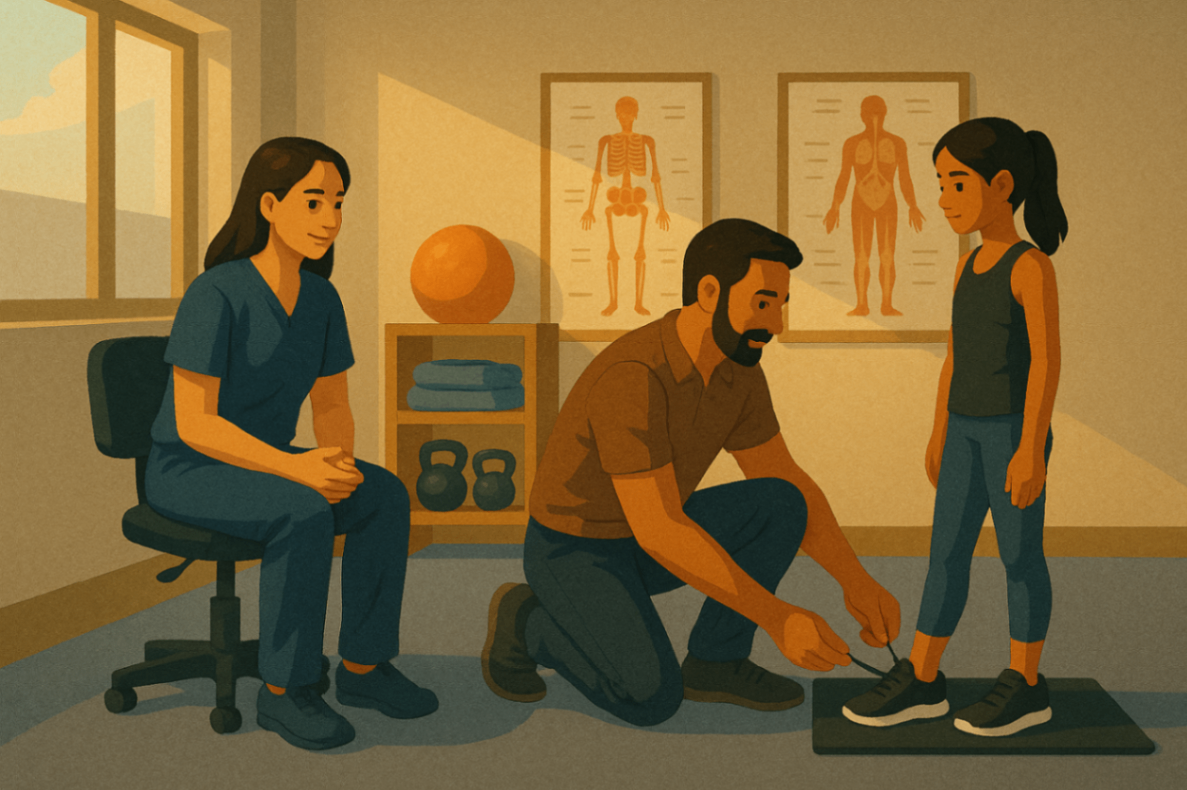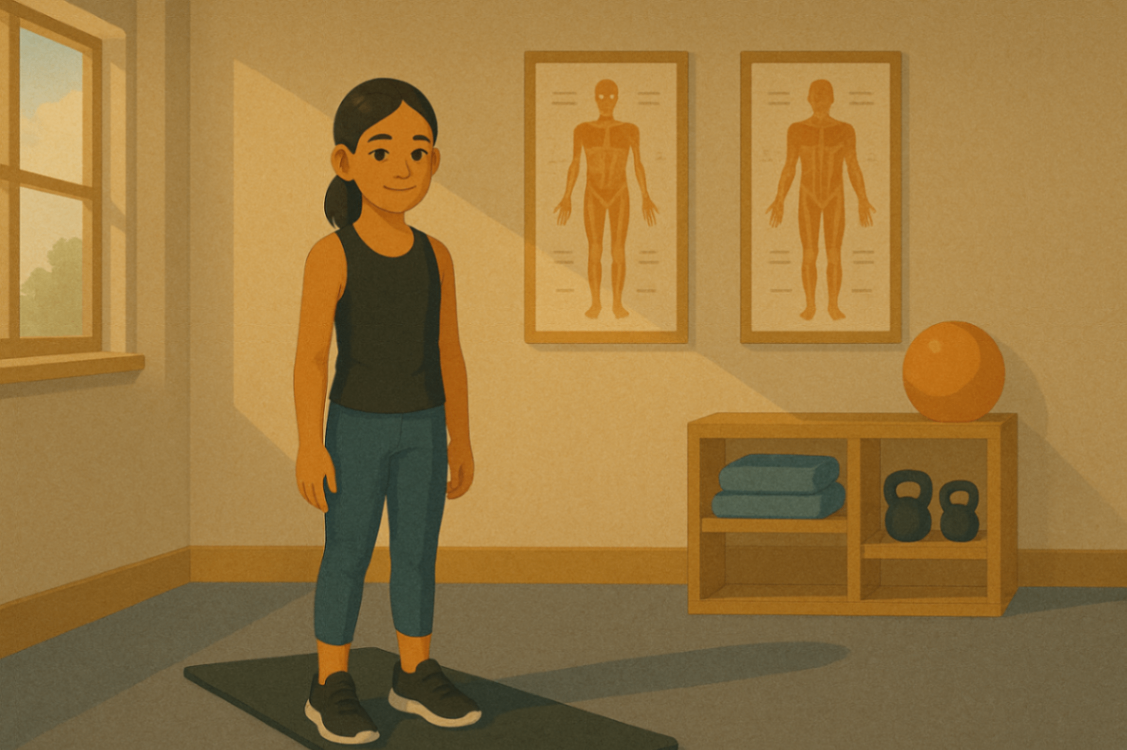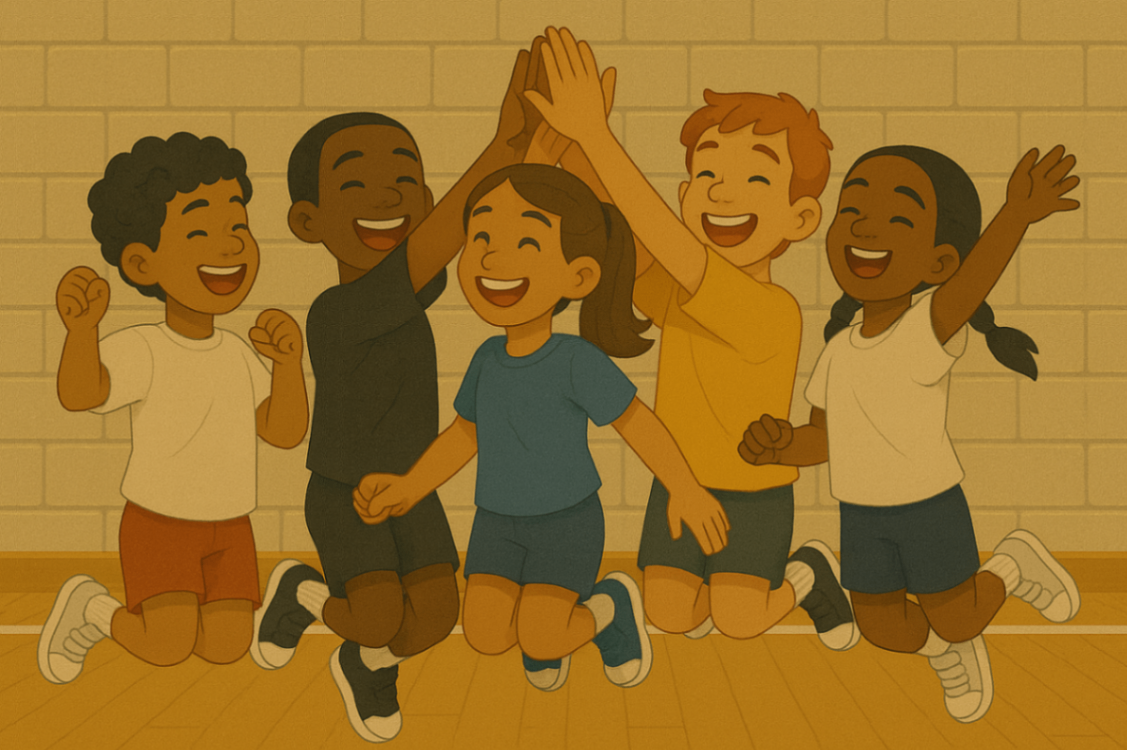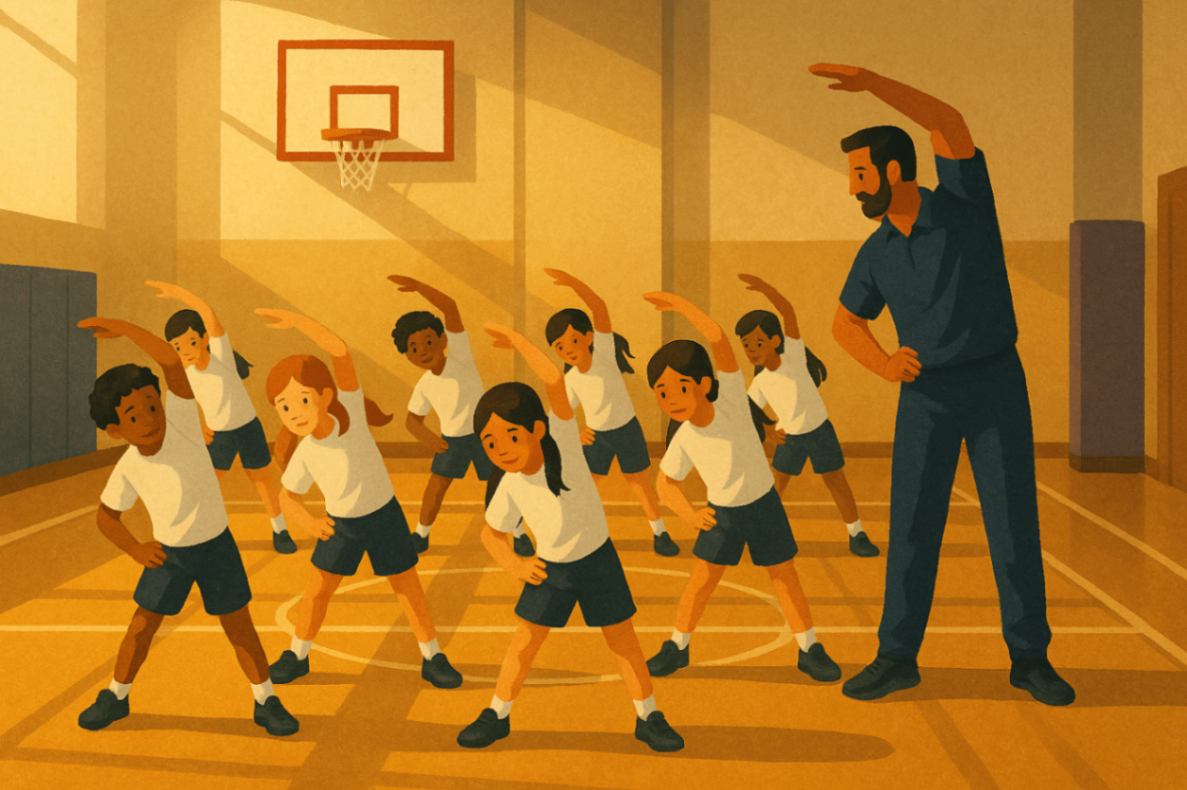
benefits of exercise physiology for kids in liverpool
22 July, 2025
Introduction
Encouraging physical activity when a child is young is very important for their growth and development. Exercise physiology looks at ways to create programs just for kids. The main focus is to help meet the needs of children through these programs. This makes sure they get both short-term and long-term health benefits. By backing the development of children through movement, it helps them get better physical fitness, strength, and a steady mood. For families, exercise physiology for kids in Liverpool offers support to build healthy habits early. It also brings social and academic benefits that help children thrive.
Key Highlights
-
Exercise physiology supports kids in Liverpool by promoting improved physical fitness and overall healthy development.
-
Accredited exercise physiologists develop personalized, age-appropriate programs beneficial for children, including those with special needs.
-
These services foster improved strength, flexibility, endurance, and emotional well-being, positively impacting a child’s daily life.
-
Evidence-based programs help in advancing children’s academic performance and long-term health.
-
Families in Liverpool can access services through the NDIS and other accessible funding avenues.
-
Early intervention through such programs lays the foundation for healthier futures for growing children.
What is exercise physiology and why is it important for kids?

Exercise physiology is the study of how physical activity affects the body. For kids, it’s crucial as it promotes healthy growth, enhances physical performance, and prevents obesity. Understanding exercise physiology helps develop tailored fitness programs, ensuring children stay active and healthy while enjoying various activities in a safe manner.
Exercise physiology is a science-based way to help kids get more physical activity, so they can be healthy and strong as they grow. It focuses on how the right movements and exercises can help in the full development of children.
What is special about exercise physiology is how well it understands the way a child’s body reacts to physical activity. This means that every exercise is chosen to fit where the kids are in their growth. With this knowledge, children get the most out of moving. They become better not just in their bodies but also in how they feel, by making exercise both fun and good for their minds and the development of children.
If you need more examples of meaningful, family-centred outcome measures to use in plans, read Measuring Progress — Key Outcomes in Exercise Physiology
What Is Pediatric Exercise Physiology?
Pediatric exercise physiology looks at how physical activity helps the body and mind of children. This field does more than just focus on general fitness. It uses research to study things like maximal oxygen uptake and how much energy children use during exercise performance. The goal is to find the best ways to boost a child’s physical health and emotional well-being.
Exercise physiologists who work with children make plans that fit each age group. They help improve cardiorespiratory fitness, build strength, and grow motor skills. These programs are good for everyone—from young athletes to those who need extra help with their development.
Pediatric exercise physiology uses proven ways to watch and measure a child’s physical activity needs. For example, they use dynamic balance tests or track a child’s cardiorespiratory fitness to follow growth over time. This focus on each child helps improve endurance, flexibility, and general health. The work done here is important for a child’s growth and for being healthy over the years.
How Exercise Physiology Differs for Children
Children take part in physical activity in a way that is not the same as adults. Their bodies are still growing. Their systems are still developing. For example, children’s heart rates go up faster, but their cardiac output is not as strong as that of adults. Because of this, they need a shorter time to recover. They also need to do more short bursts of activity.
Exercise physiologists make programs that fit the physical activity levels, age, and growth stage of each child, especially for aspiring elite athletes. These are different from adult fitness plans. Instead, they work to improve a child’s fundamental motor skills, like balance and coordination, which are key for good childhood exercise.
Children’s fitness programs also look at building strength step by step by using fun activities, like the effects of multidirectional plyometric training. These exercises keep children safe from injuries. They also help children feel good about doing physical activity. This special way of training matches their age. It makes sure kids enjoy exercise now, while building habits for a healthy life in the future.
The Role of Accredited Exercise Physiologists in Liverpool
 Liverpool’s accredited exercise physiologists help in the development of children across many groups of people. They work with children who have different levels of physical fitness. These experts use their strong training to create programs just for each child. The focus is to help with both the physical and mental health of children.
Liverpool’s accredited exercise physiologists help in the development of children across many groups of people. They work with children who have different levels of physical fitness. These experts use their strong training to create programs just for each child. The focus is to help with both the physical and mental health of children.
These exercise physiology Liverpool professionals can assess and support children’s fitness, therapy needs, and developmental goals. Each program is built to help the child feel stronger and more confident.
Qualifications and Training in Australia
In Australia, to be an accredited exercise physiologist, you need to finish a university degree in exercise physiology. There is extra training in exercise physiology research, too. People in this field need to know how to check fitness things like heart rate, body mass index, and oxygen uptake very well, especially when working with healthy subjects.
To work with many groups, like children, you need more certificates. These focus on movement and health benefits at each stage of a child's growth. You also get hands-on work in clinical placements. This real-life work lets exercise physiologists use measurement methodologies with real people as they learn.
Exercise physiologists must keep learning new things all the time, like using cardiopulmonary exercise testing. Staying current helps make sure they know the best ways to help others. This keeps their work up-to-date and lets them use exercise physiology in a way that fits each child's special needs. They aim to give the best care and help based on evidence all the time.
Types of Services Offered to Children
Exercise physiology programs for children help to meet different fitness and growth needs. These services focus on physical fitness by offering fun activities and special challenges made for young athletes and kids who need extra help.
Common services are:
-
Cardiorespiratory fitness programs to work on aerobic fitness and improve endurance.
-
Strength and flexibility training to build motor competence and lower the chance of getting hurt.
-
Sports-specific training for soccer players, gymnasts, and others who aim to become better athletes in different sports.
-
Dynamic balance and coordination tests to see how children are doing and look at their progress.
-
Motor skill development plans that help with body control and healthy growth.
These special exercise physiology services give the right tools so children can stay active, have a good time, and get important benefits for their development.
Physical Benefits of Exercise Physiology for Kids
 Exercise physiology has a lot of benefits for children. It helps them grow and supports their health. By working on physical fitness, aerobic capacity, and a healthy body mass index, these programs push children to get stronger and healthier.
Exercise physiology has a lot of benefits for children. It helps them grow and supports their health. By working on physical fitness, aerobic capacity, and a healthy body mass index, these programs push children to get stronger and healthier.
Tailored activities help the child build core muscle strength. They also help improve flexibility and endurance. These gains make it easier for them to do daily tasks, play sports, and face other physical challenges. This leads children to have a more active way of life.
Enhancing Strength, Flexibility, and Endurance
Programs made by exercise physiologists help children get better at strength, flexibility, and endurance. These things are very important for child growth. Kids do activities to check how much oxygen uptake their bodies can handle and measure their power output. By doing this over time, they build up more strength and can handle more physical activity.
Children take part in fun exercises, like games that also give them strength training or stretching drills. They often do moves like dynamic stretching. By doing these exercises often, kids get better at lasting longer when they play or do another physical activity while still keeping their muscle power.
All of this together gives children better body control, helps lower the chance of getting hurt, and encourages them to stay active each day. With better basics, they not only do well in sports, but they also handle any kind of physical activity in life and feel good in other areas too.
Supporting Healthy Growth and Development
Physical activity is very important for the healthy growth and development of elementary school children. Exercise physiology helps a lot with this. Things like multidirectional plyometric training help kids get better at fundamental motor skills at a fundamental level, such as balance, coordination, and agility.
When children move and exercise often, their bone density goes up. Their muscles get stronger as well. There is also a good effect on the body mass ratio for these children. By doing these activities, kids grow in both their body and mind. It helps them make healthy and fit choices for the rest of their lives.
Exercise physiology also helps kids get better at quick and powerful movements, like jumping or running. With this, there will be changes in their posture, stamina, and how well they do other physical tasks.
Mental and Emotional Benefits for Children
 You cannot say enough about how important emotional well-being is in childhood. Exercise physiology helps young children with this in a special way. When you take part in regular physical activities, it can boost self-esteem. It also helps you learn how to handle your feelings better.
You cannot say enough about how important emotional well-being is in childhood. Exercise physiology helps young children with this in a special way. When you take part in regular physical activities, it can boost self-esteem. It also helps you learn how to handle your feelings better.
Exercise physiologists often create structured programs. These do more than make you physically fit. They also help students with academic achievement and getting along with others. Kids who join these programs often see less anxiety, better mood, and more confidence. All these good changes are needed while children grow, both at school and at home.
Boosting Confidence and Self-Esteem
Confidence and self-esteem play a big part in a child's emotional development. Exercise physiology helps grow both. When children do special physical activities, they learn to tackle problems. This gives them a strong feeling of success.
Exercise physiologists set up programs that match the child’s skills. They make sure the child feels helped and can reach their goals. This type of upbeat and proud setting makes their emotional regulation better. When a child learns a new motor skill, it helps them think, “I can do this.” The new skills help them feel confident. This good feeling makes them better at other, non-physical things, too.
The progress made through exercise physiology is not just for workouts. It matters for how these young people make friends and do at school. Because of this, they build up their emotional resilience and are better able to handle different parts of life.
Reducing Anxiety and Improving Mood
Physical activity helps kids feel better and less worried. When children move and play, their bodies let out endorphins. These are called "feel-good" chemicals. Endorphins help lower stress.
Programs made by experts add fun things like group games. These games let kids make friends and get better at physical fitness. They also help children use up their extra energy. This makes them feel calmer.
When exercise is fun, all children can join in. This way, kids see a lift in their mental health. They have fewer worries. They also grow stronger and steadier on the inside thanks to physical activity.
Addressing Special Needs through Exercise Physiology

Personalized exercise physiology interventions are made for children with special needs. These plans help them do better in physical activities and feel like they belong. The programs look at the special physical fitness needs each child has, and they work on things like motor competence and cardiopulmonary exercise testing.
They use activities that help with dynamic postural control and increase oxygen uptake. This can give the children more health benefits and support better physical performance, including performance in dynamic walking tests. These programs also help with social integration, so kids can build important skills, work together, and feel supported. Being in these programs can lead to better emotional regulation and overall well-being for each child.
Tailored Programs for Kids with Disabilities
Personalized exercise physiology programs are made for kids with disabilities. These programs fit the needs of each child. The idea is to help the kids get better at moving and improve their physical performance. They work on fundamental motor skills like running, jumping, and balance. There are health benefits, too, like better heart health and improved body functions. Each program looks at what the child can do and builds on that. This helps with things like emotional regulation and gives the kids more self-esteem. The goal is for these young athletes to feel confident. They will be able to try more physical activities and enjoy a better quality of life.
Inclusion and Social Integration Benefits
Taking part in exercise physiology programs that are made for kids helps them feel like they belong, especially kids with disabilities. These activities help to make physical fitness better and also help with emotional regulation and learning social skills. When kids join group activities, they can meet and talk with others. This includes bringing together healthy children and those from different populations, like kids with special needs. In these settings, everyone feels included. The kids get more confidence, and young athletes learn to improve their oxygen uptake and even their maximal oxygen uptake. Friendships and teamwork also grow, which is good for the whole group. These skills are not just for sports but also help with academic achievement.
Accessing Exercise Physiology Services in Liverpool
Finding exercise physiology services in Liverpool means looking for trusted experts who know how to help children with their special needs. Families can check local clinics, schools, or NDIS-funded programs offering exercise physiology Liverpool services tailored for children. These options ensure access to safe, child-focused care.
It is also good to learn about ways to pay, such as through programs like the NDIS. This can make it easier to use these services, so families can meet exercise physiologists who use research-based methods. These experts work to raise physical performance and give the best care for each child.
How to Find Accredited Providers Locally
Finding accredited exercise physiology providers in Liverpool can help your child get more health benefits and improve their physical performance. First, look in local health directories or go to groups that focus on care for kids. You can also ask your child’s school or talk to parent support networks to get good advice. Another way is to reach out to registered exercise physiologists who work with children, including kids with disabilities. Make sure the person you choose has the right credentials and has worked with children’s physical activity and cardiorespiratory fitness before. This will help them better understand your child’s unique physical activity levels and needs.
NDIS and Other Funding Options for Families
Finding ways to pay for exercise physiology services can be tough for many families. The National Disability Insurance Scheme (NDIS) is there to help. It gives support and helps you pay for programs made just for your child's needs. These programs focus on physical activity and help improve health benefits like better fitness status and higher physical activity levels. The NDIS is not the only way to get help. There are also some community grants and local efforts that support families who have kids facing different challenges. These options make sure all kids can get the important services they need. If you talk to someone who is an accredited provider, they can help you find more ways to get funding. This way, families can use the support to help their child grow, move more, and feel better.
Conclusion
Bringing exercise physiology into programs for children, especially in Liverpool, can help a lot with health. The health benefits include better physical fitness and better control over feelings, like emotional regulation. These ideas are made to help the physical growth of each person. They also help kids feel supported so they can fit in with others and do well at school, leading to academic achievement. Programs in exercise physiology for kids in Liverpool are already changing lives—by helping children build confidence, develop physically, and feel supported in both school and social settings. More people are starting to see why programs like these are important. When they focus on all kinds of groups, even those with special needs, it helps everyone have a good and healthy future.
If you want your child to have a healthy lifestyle for life, this is a good place to start, contact us.
Frequently Asked Questions
How often should children participate in exercise physiology sessions?
Children should take part in exercise physiology sessions two or three times each week. This regular practice can help them with their physical health, social skills, and how they feel overall. The program can also be changed to fit each child’s needs and what they want to get out of it, so they get the best support.
Can exercise physiology help children with chronic health conditions?
Yes, exercise physiology can really help children who are living with health problems that last a long time. By having special exercise plans made just for them, these children can move better, feel happier, and be more healthy. When the program fits their own needs, it helps them do more on their own in experimental group settings. They get the tools they need to take care of their health in the best way they can.
What activities are included in pediatric exercise physiology programs?
Pediatric exercise physiology programs use things like strength training, balance exercises, adaptive sports, and ways to help kids move better. All these activities are set up to help children get stronger, improve how they move, and build their skills. The programs also help kids work on their motor skills, spend time with others, and be more social. This way, exercise physiology takes care of both the body and mind of children who have different needs.
Is a referral needed to see an exercise physiologist in Liverpool?
In Liverpool, you may not need a referral to see an exercise physiologist. But, if you get one from your doctor or health provider, it can help you get the right care. This is true if you have special needs or a disability. It is good to check with each practice, as their rules might be different.
What age can children start seeing an exercise physiologist?
Children can start seeing an exercise physiologist when they are as young as 2 years old. If this happens, they get the help they need early. This support can fix any developmental concerns and help them build good habits for life. The exercise programs are made for each child, so their needs are met. These programs help kids get stronger, move better, and feel good.
.svg)

















